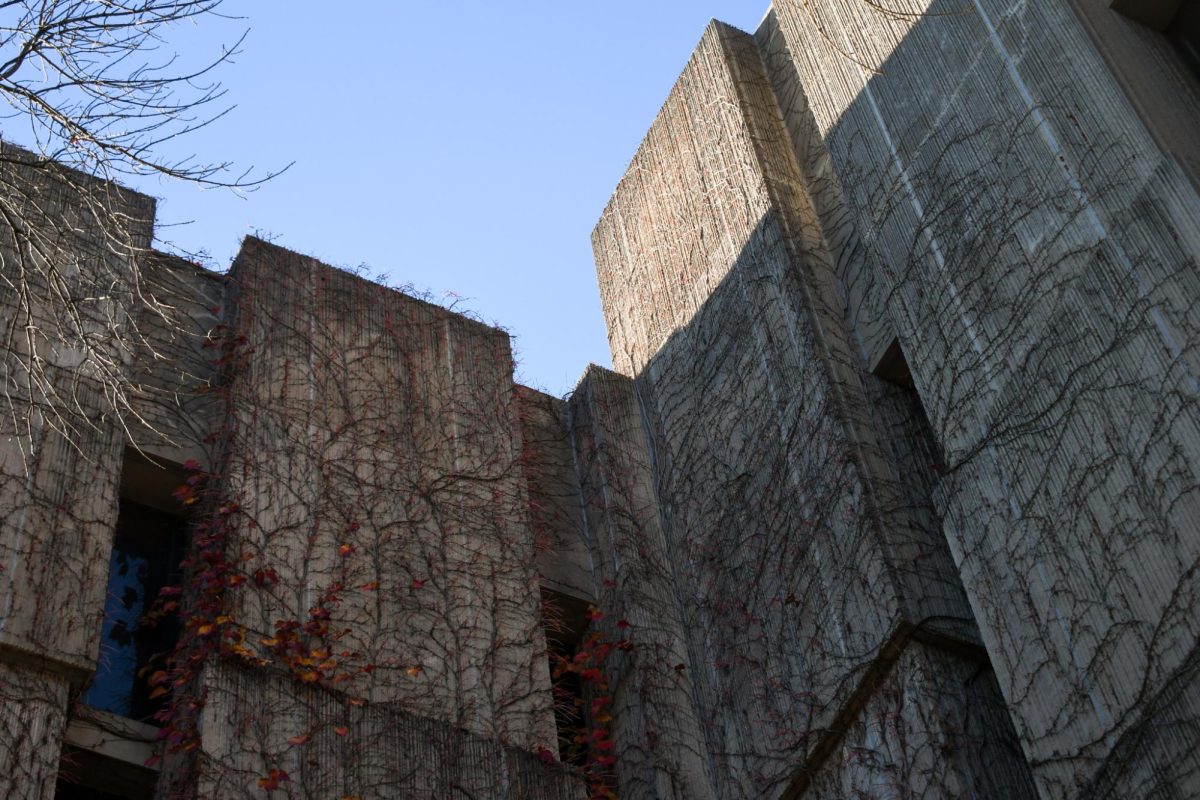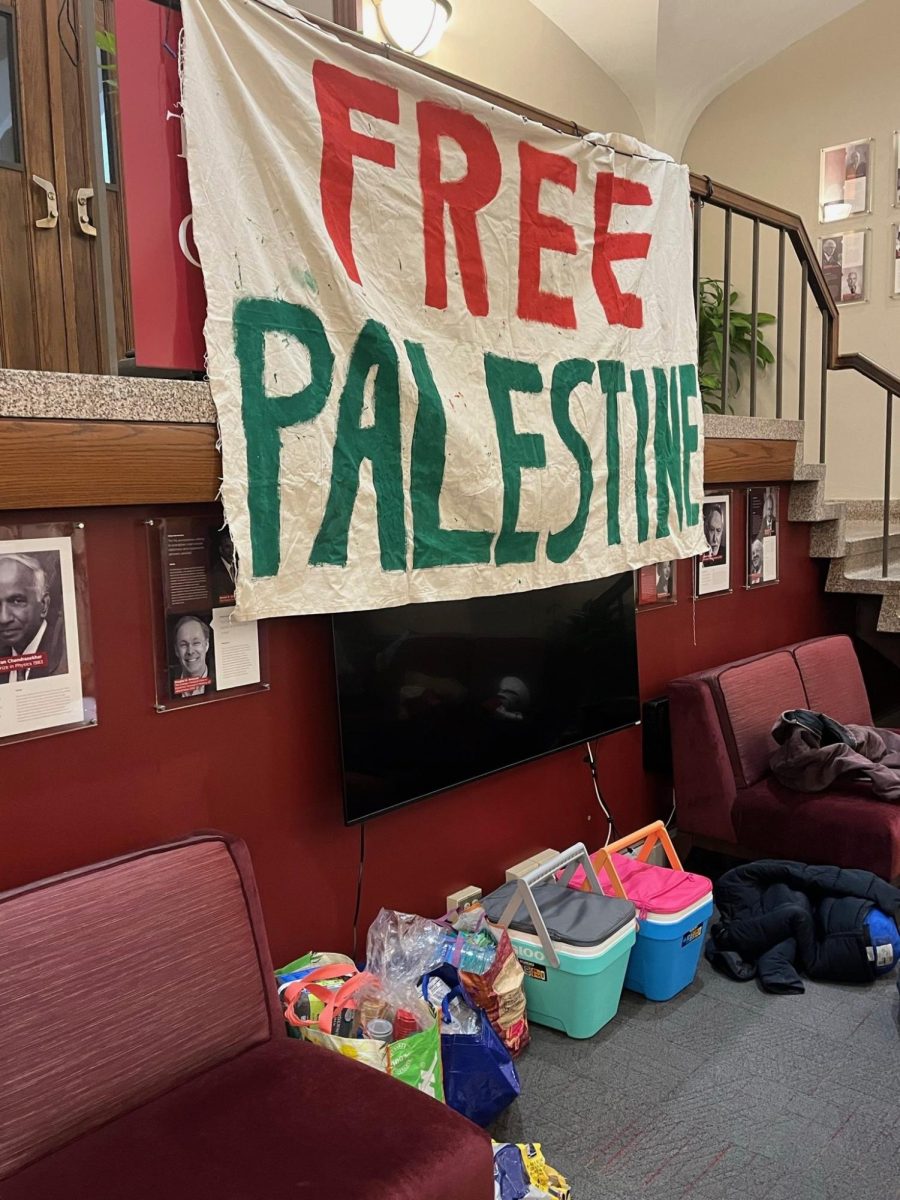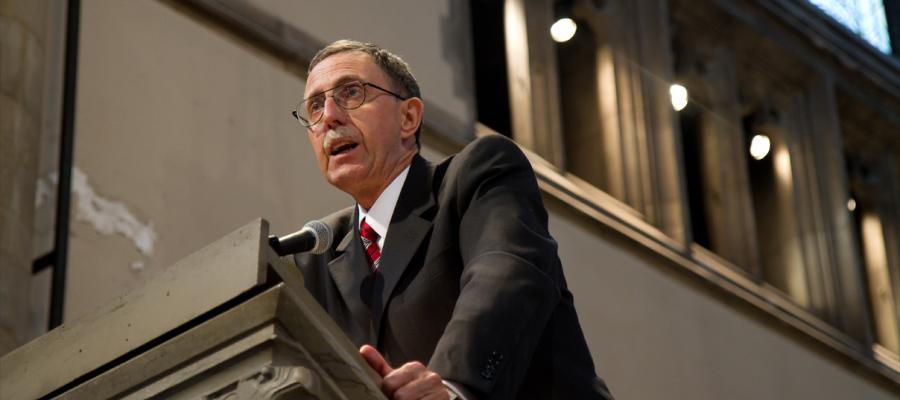In a Viewpoints article published in last Tuesday’s issue of The Maroon, “CAT’s Out of the Bag” (5/19/15), Cortney McInerney addressed the Student Government Assembly’s decision to decrease the budget for the Coalition of Academic Teams (CAT) by $20,000 next year. While debate over the budget decisions is always welcome, the facts and positions presented in McInerney’s piece were at best misinformed and at worst dishonest; I wish to present some clarifications and objections.
As a fourth-year College Council representative, I am proud to say that Student Government will be supporting the Coalition of Academic Teams to the tune of $200,000 for the 2015–16 academic year. This line item represents approximately 9.2 percent of the overall Student Government budget next year; to put this amount into perspective, the five members of CAT will split an amount equivalent to approximately 27 percent of the combined budgets for the Student Government Finance Committee (SGFC) and Annual Allocations (AnnAl) which serve the vast majority of the more than 300 other RSOs on campus.
Over the past five years, the budget of CAT has ballooned from $157,000 for the 2010–11 academic year to $220,000 for the 2014–15 academic year. The CAT budgets for the past five years are as follows: $157,000 for 2010–11, $171,000 for 2011–12, $180,000 for 2012–13, $190,000 for 2013–14, and $220,000 for 2014–15. The 2014–15 budget came after an unprecedented increase of $30,000 from the 2013–14 budget of $190,000. The recent changes made to CAT’s budget for next year, then, are not really cuts so much as a return to a previous quota.
In the article, McInerney cites an estimated figure of $75,000 as evidence for significant fundraising efforts on the part of CAT teams. However, this figure is both unsubstantiated and potentially highly inflated. As I noted last Wednesday in the College Council meeting, a large portion of the fundraising figures comes from $62,000 from registration fees for Model UN’s college conference. This number is actually misleading as it only represents revenue and does not include costs. According to a Model UN representative at the meeting, after costs the conference generated just $3,200 in profit. Hence, the true amount of fundraising is but a fraction of what was reported.
Additionally, McInerney attributes the Assembly’s decision over CAT’s budget partly to a political calculus that weighed the potential backlash from various campus groups on the one hand and the necessity for cuts on the other. This is a fairly dishonest portrayal of the Assembly’s deliberative process. We encountered no lobbying threats from the Program Coordinating Council (PCC) or any other organizations on campus, and the decision to cut the Uncommon Fund was simply because that money was not being used.
In reality, the Assembly debated—for more than an hour in a public meeting—the costs and benefits from increases or decreases to the various line items in the proposed budget. This included a vigorous debate over the usage of funds allocated toward the New York Times readership program, the SG administrative budget, Student Organization Support, and the PCC. The Assembly ultimately decided that we could stand to bring CAT’s budget back from the unprecedented $30,000 increase it enjoyed last year in order to move the needle toward more equitable funding for graduate students.
McInerney also claims that low-income students must necessarily bear the brunt of the budget decreases, but this portrayal raises the question of what factors are forcing CAT leaders to shift this burden primarily onto its lower-income members. Is it unreasonable to ask CAT members to cut down on expenses or to ask its hundreds of student members to spend an hour or two selling doughnuts or networking with alumni in order to make participation more accessible to more people? Furthermore, it begs the question of what has happened over the past two years that a $10,000 increase from the 2013–14 budget would represent such an existential threat.
Most importantly, while McInerney’s piece implies that the decision over CAT’s budget was made without consideration of low-income students, precisely the opposite is true. Not all students in this University are able to enjoy the same privileges that members of CAT have. For example, unlike CAT members whose travel is almost entirely free, graduate students are only allowed subsidized travel from SG once every six years for conducting or presenting research, and other RSOs are only allowed to receive at most $200 or half of their travel budget, depending on which of the two is less—the rest of the costs must be entirely fundraised by the RSO members themselves. The funds being subtracted from the CAT and Uncommon Fund budgets for the next academic year will then actually go toward helping lower-income students as these funds will be moved toward SGFC, AnnAl, the Graduate Council, and the Graduate Student Travel Fund.
Whether we should privilege competitive academic teams in our funding decisions and whether students should have broader access to these teams in particular are both debates that I am excited to be taking part in. This past Wednesday, College Council passed a resolution stating our commitment to discussing CAT’s budget and possibly reversing the decision that was made; I am more than willing to change my vote if good and honest reasons can be provided during the course of a spirited debate. However, such a debate can only occur when the parties engage each other with openness and honesty, and without misinformation.
—Kay Li, Class of 2015







